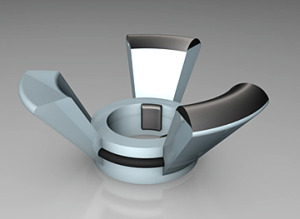
Recent biomedical engineering graduates Karin Hwang, Chris Courville, Deepika Sagaram and Rose Huang have invented a device called CervoCheck that they believe can help detect contractions and thus alert an expectant mom that she might be going into preterm labor.
CervoCheck is a small ring that has been embedded with sensors and it can be put in the vaginal canal of a women’s body by a doctor. The ring can pick up electronic signals associated with uterine contractions and according to the students, detect a preterm labor much earlier than present testing methods.
Even though the ring has only been tested on animals, the students have obtained a provisional patent on the device.
Preterm births are defined as a baby that arrives before 37 weeks of pregnancy. The baby, due to the insufficient time he spends in the womb, may have various health complications and developmental issues. In the US there are annually 500,000 cases of preterm births and the inventors believe that they can cut this number down drastically with the device.
If CervoCheck is able to detect preterm birth, precautionary measures could prolong the birth another six weeks. This could save families upwards of $44,000 in NICU care costs and give the baby a chance to grow healthy and strong in the womb. – Atula, Staff Writer
- A Tiny Little Girl Named America Beats the Overwhelming Odds
- Tiny Baby Born With Rare Illness That Leaves Intestines Outside of His Body
- Couple Takes Out Billboard Ad To Thank Hospital For Saving Daughter’s Life
- 23 Week Twins Challenge The UK’s Viability Threshold






